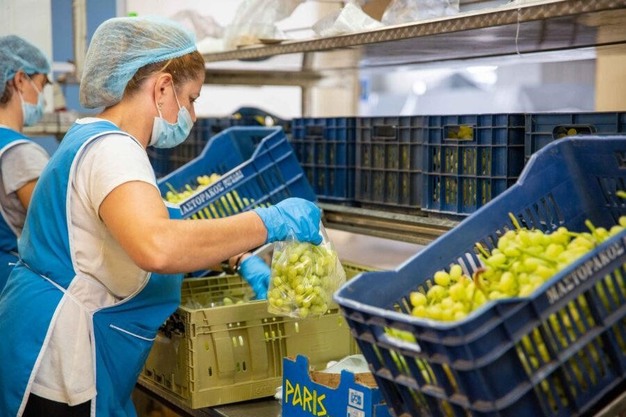November finds Greek cooling chambers empty of grapes, as states Mr. Stavros Mastorakos, owner of the Greek trading company Mastorakos Korinthian Fruits, headquartered in Korinthos, but sourcing grapes from all over Greece. The last sold grapes were those from the prefecture of Kavala in northern Greece. "Personally, I sold my last batches last week. I am among the last and few who managed to meet some of their clients' needs until the end of October. However, even the merchants based in Kavala no longer have any stocks."
Actually, there are some remainders of very late varieties here and there, in some estates and in some cooling chambers in Kavala, but they are entirely unsuitable for export. Even markets that are not very demanding in terms of quality will probably not opt for Greek grapes. "There are many reasons: quality, volume, and price," stresses Mr. Mastorakos. As he explains, "These grapes belong to good, late, seedless varieties, but almost all of them now have serious quality issues due to their unfavorable exposure to intense sun during October. The grower's price in Kavala for the season's last part was set at €2,50/kg. Last week, I bought my last supplies from Kavala at €2,80/kg. So the prices are not competitive at all, especially when we speak about such low volumes."

According to official data from the Greek Ministry of Agricultural Development and Foodstuff, table grape exports concluded their current export season with a total volume of 38.419 tons, marking a slight decrease of -0,5% compared to 38.618 tons in 2023.
Finally, this year saw the first uprooting of unauthorized plantations of the club variety Pristine® in Greece. Although this farm was located in Kavala, Mr. Mastorakos estimates that there are many more owners of similar unauthorized plantations in the same area who have not been deterred from continuing their illegal practices. "It is even possible to see unauthorized plantations multiply and extend beyond the prefecture of Kavala, even into southern Greece," concludes Mr. Mastorakos.
For more information:
Stavros Mastorakos
Mastorakos Korinthian Fruits
Tel: +306945804094
[email protected]
https://mastorakosfruits.com/
